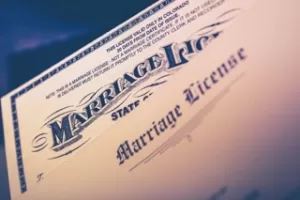Facing a criminal charge can be frightening and embarrassing. You may be thinking about whether or not you’ll have to go to jail, what your family will think, or how the charges might affect your employment. Being charged with a crime is indeed a serious matter, and it can have a significant impact on a person’s life. However, in some cases, Indiana law provides a way for those charged with certain crimes to avoid criminal prosecution and conviction, and to have their charges dismissed under certain conditions.
This program is known in most counties as a Pre-Trial Diversion Program, or PDP. Pre-trial diversion was created by statute, and is referenced in several parts of the Indiana Code, primarily I.C. 33-39-1-8. Through diversion, a person who has been charged with a misdemeanor or low-level felony may, at the discretion of a prosecutor, enter the diversion program, and upon successful completion of the program, the charges will be dismissed.
It is important to note that, while diversion is a part of Indiana statutory law, prosecutors are given a large amount of leeway in how they apply it. Prosecutors are not mandated to offer diversion, and often, whether or not a prosecutor decides to offer a diversionary program will depend heavily on the specifics of the case. Therefore, there are no fixed rules to determine when diversion will or will not be offered. There are some (very) general rules of thumb, however. Prosecutors will look at the nature of the crime charged, with some prosecutors being less likely to offer diversions for certain types of offenses (such as those involving alcohol or drugs). Prosecutors may also look at whether there was a victim involved. Most prosecutors will seriously consider the defendant’s criminal history, with one or more past convictions often disqualifying that person for diversion. Many prosecutors in rural counties may be less generous in offering diversions, while larger, more urban districts may offer them more frequently. All of these, however, are broad generalities. As noted, the prosecutor is given so much discretion, that the possibility of diversion can properly be judged only on a case-by-case basis.
Another factor which will impact the possibility of diversion is the type of crime committed. Indiana statutes prohibit certain types of crimes from being eligible for diversion. These include drunk driving (OWI or OVWI), and crimes involving drivers who have a CDL license. Outside of these exceptions, though, generally most other misdemeanors will at least be eligible for diversion.
If a defendant is offered a diversion, the program will likely be straightforward, and lay out the specific details of what the defendant must do in order to successfully complete the program. A typical (though not universal) program may include payment of requisite fees, a number of community service hours, completion of an educational program related to the crime charged, possible drug or alcohol testing, and a requirement that the defendant not get arrested for a set period of time.
Much of state law is designed to punish severe offenders. However, some portions of these laws are also designed to offer “second chances” to those individuals who don’t pose a serious threat to the community, but who simply made a rare mistake in judgment or action. Diversion can be a helpful second chance for defendants without a criminal history, who made a mistake and were charged with a misdemeanor or low-level felony. If you are facing criminal charges, speak with an attorney about the possibility of obtaining a diversion, and possibly having your charges dismissed.
Contact us if you have any additional questions or need assistance with a legal matter.
NOTE
This article primarily references Indiana law. Please check the laws of your local jurisdiction if you live in another state.
The articles in this blog are for informational purposes only. No attorney-client relationship is established through the publication of these articles.







